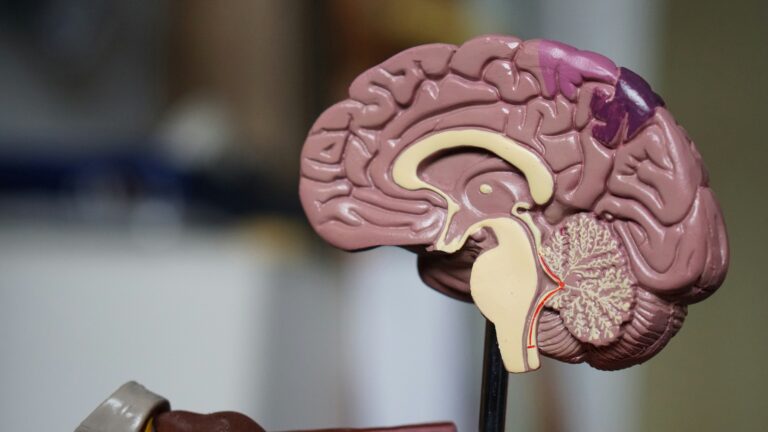In recent years, the relationship between mental health and nutrition has become a topic of increasing interest and research. While the link between diet and physical health is well-established, emerging evidence suggests that what we eat also has a profound impact on our mental well-being. This article delves into the intricate connection between mental health and nutrition, exploring how dietary choices influence mood, cognition, and overall mental health.

The Brain-Gut Connection
The Brain-Gut Connection
Central to understanding the relationship between nutrition and mental health is the brain-gut axis. This bi-directional communication system links the central nervous system with the enteric nervous system, involving complex interactions between the brain, gut, and the gut microbiome – the trillions of microorganisms residing in the digestive tract.
The Role of the Gut Microbiome
The gut microbiome plays a crucial role in maintaining overall health, including mental health. It influences the production of neurotransmitters, such as serotonin and dopamine, which are essential for regulating mood and emotional well-being. Approximately 90% of serotonin, often referred to as the “feel-good” hormone, is produced in the gut. A healthy, balanced gut microbiome is therefore vital for mental health.
Nutrients Essential for Mental Health
Omega-3 Fatty Acids
Omega-3 fatty acids, found in fatty fish like salmon and mackerel, as well as in flaxseeds and walnuts, are essential for brain health. These fatty acids are integral components of cell membranes and play a role in anti-inflammatory processes. Studies have shown that omega-3 fatty acids can help reduce symptoms of depression and anxiety, and improve cognitive function.
B Vitamins
B vitamins, particularly B6, B12, and folate, are crucial for brain health. They are involved in the production of neurotransmitters and play a role in regulating mood. Deficiencies in these vitamins have been linked to depression, cognitive decline, and other mental health issues. Leafy greens, legumes, eggs, and fortified cereals are excellent sources of B vitamins.
Vitamin D
Vitamin D, often referred to as the “sunshine vitamin,” is important for brain function and mood regulation. Low levels of vitamin D have been associated with depression and seasonal affective disorder (SAD). While sunlight is a primary source of vitamin D, it can also be found in foods like fatty fish, egg yolks, and fortified dairy products.
Antioxidants
Antioxidants, such as vitamins C and E, and polyphenols found in fruits and vegetables, protect the brain from oxidative stress and inflammation. Oxidative stress can damage brain cells and is linked to various mental health disorders. A diet rich in colorful fruits and vegetables can help combat oxidative stress and promote mental well-being.
Magnesium
Magnesium is a mineral involved in numerous biochemical reactions in the body, including those that regulate mood and brain function. Low magnesium levels have been linked to anxiety, depression, and ADHD. Foods rich in magnesium include dark leafy greens, nuts, seeds, and whole grains.

Diets and Mental Health
Mediterranean Diet
The Mediterranean diet, characterized by high consumption of fruits, vegetables, whole grains, nuts, seeds, and olive oil, has been associated with numerous health benefits, including improved mental health. Studies have found that adherence to a Mediterranean diet is linked to lower rates of depression and cognitive decline. The diet’s emphasis on anti-inflammatory and antioxidant-rich foods supports brain health and emotional well-being.
Western Diet
In contrast, the Western diet, which is high in processed foods, sugar, and unhealthy fats, has been associated with increased rates of depression, anxiety, and other mental health disorders. This diet often leads to inflammation, oxidative stress, and imbalances in the gut microbiome, all of which can negatively impact mental health.
Probiotics and Prebiotics
Probiotics are live beneficial bacteria found in fermented foods like yogurt, kefir, sauerkraut, and kimchi. Prebiotics are non-digestible fibers that feed these beneficial bacteria, found in foods like garlic, onions, bananas, and asparagus. Both probiotics and prebiotics support a healthy gut microbiome, which in turn supports mental health. Research has shown that probiotics can reduce symptoms of depression and anxiety, highlighting the importance of gut health for mental well-being.
The Impact of Nutrition on Specific Mental Health Conditions
Depression
Depression is a common mental health disorder that can be influenced by diet. Studies have shown that diets rich in omega-3 fatty acids, B vitamins, and antioxidants can help alleviate symptoms of depression. Additionally, reducing intake of processed foods and sugars can have a positive impact on mood and overall mental health.
Anxiety
Anxiety disorders are also affected by diet. Magnesium, omega-3 fatty acids, and probiotics have been found to reduce anxiety symptoms. Avoiding caffeine and sugar, which can exacerbate anxiety, is also recommended for managing anxiety disorders.
ADHD
Attention-deficit/hyperactivity disorder (ADHD) is a neurodevelopmental disorder that can be influenced by diet. Some studies suggest that omega-3 fatty acid supplementation can improve symptoms of ADHD. Additionally, avoiding artificial food additives and maintaining a balanced diet rich in nutrients can support cognitive function and behavior in individuals with ADHD.
Cognitive Decline
Cognitive decline and neurodegenerative diseases like Alzheimer’s are influenced by diet. Diets rich in antioxidants, omega-3 fatty acids, and anti-inflammatory foods can help protect against cognitive decline. The Mediterranean diet, in particular, has been associated with a lower risk of Alzheimer’s disease and improved cognitive function in older adults.

Practical Tips for Supporting Mental Health Through Nutrition
Eat a Balanced Diet
Ensure that your diet includes a variety of nutrient-dense foods. Focus on incorporating plenty of fruits, vegetables, whole grains, lean proteins, and healthy fats. A balanced diet provides the essential nutrients needed for brain health and mental well-being.
Limit Processed Foods and Sugars
Minimize the intake of processed foods, sugary snacks, and beverages. These can contribute to inflammation and imbalances in the gut microbiome, negatively impacting mental health.
Include Omega-3 Rich Foods
Incorporate sources of omega-3 fatty acids into your diet, such as fatty fish, flaxseeds, chia seeds, and walnuts. Omega-3s support brain health and can reduce symptoms of depression and anxiety.
Stay Hydrated
Dehydration can affect mood and cognitive function. Ensure that you are drinking enough water throughout the day to stay hydrated and support overall health.
Consider Supplements
If you have difficulty obtaining certain nutrients from your diet alone, consider taking supplements. Omega-3 fatty acids, B vitamins, and vitamin D supplements can be beneficial for mental health. Consult with a healthcare professional before starting any new supplement regimen.
Practice Mindful Eating
Mindful eating involves paying attention to what and how you eat, fostering a healthy relationship with food. It can help reduce stress and promote a positive mindset, contributing to better mental health.
Conclusion
The connection between mental health and nutrition is profound and complex. A balanced diet rich in essential nutrients, coupled with healthy lifestyle choices, can significantly impact mental well-being. By understanding the role of nutrition in mental health, we can make informed dietary choices that support not only our physical health but also our emotional and cognitive well-being. Remember, a healthy mind and body go hand in hand, and nourishing both is key to achieving overall health and happiness.




